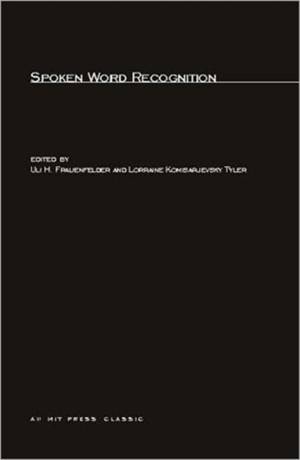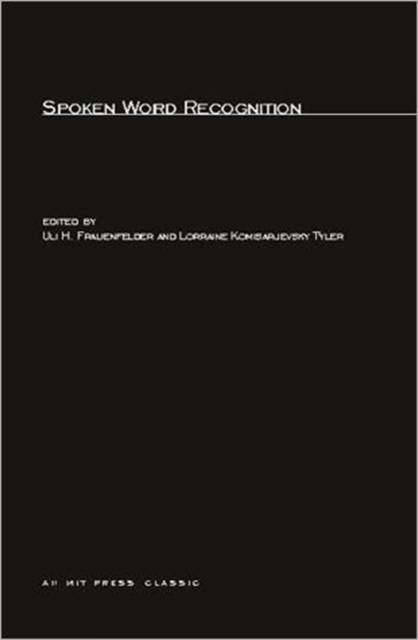
- Afhalen na 1 uur in een winkel met voorraad
- Gratis thuislevering in België vanaf € 30
- Ruim aanbod met 7 miljoen producten
- Afhalen na 1 uur in een winkel met voorraad
- Gratis thuislevering in België vanaf € 30
- Ruim aanbod met 7 miljoen producten
Omschrijving
Spoken Word Recognition covers the entire range of processes involved in recognizing spoken words - both in and out of context. It brings together a number of essays dealing with important theoretical questions raised by the study of spoken word recognition - among them, how do we understand fluent speech as efficiently and effortlessly as we do? What are the mental processes and representations involved when we recognize spoken words? How do these differ from those involved in reading written words? What information is stored in our mental lexicon and how is it structured? What do linguistic and computational theories tell us about these psychological processes and representations? The multidisciplinary presentation of work by phoneticians, linguists, psychologists, and computer scientists reflects the growing interest in spoken word recognition from a number of different perspectives. It is a natural consequence of the mediating role that lexical representations and processes play in language understanding, linking sound with meaning.Following the editors' introduction, the contributions and their authors are: Acoustic-Phonetic Representation in Word Recognition (David B. Pisoni and Paul A. Luce). Phonological Parsing and Lexical Retrieval (Kenneth W. Church). Parallel Processing in Spoken Word Recognition (William D. Marslen-Wilson). A Reader's View of Listening (Dianne C. Bradley and Kenneth I. Forster). Prosodic Structure and Spoken Word Recognition (Francois Grosjean and James Paul Gee). Structure in Auditory Word Recognition (Lyn Frazier). The Mental Representation of the Meaning of Words (P. N. Johnson-Laird). Context Effects in Lexical Processing (Michael K. Tanenhaus and Margery M. Lucas).
Spoken Word Recognition is in a series that is derived from special issues of Cognition: International Journal of Cognitive Science, edited by Jacques Mehler. A Bradford Book.
Specificaties
Betrokkenen
- Uitgeverij:
Inhoud
- Aantal bladzijden:
- 250
- Taal:
- Engels
- Reeks:
Eigenschappen
- Productcode (EAN):
- 9780262560399
- Verschijningsdatum:
- 24/08/1987
- Uitvoering:
- Paperback
- Formaat:
- Trade paperback (VS)
- Afmetingen:
- 150 mm x 226 mm
- Gewicht:
- 340 g

Alleen bij Standaard Boekhandel
Beoordelingen
We publiceren alleen reviews die voldoen aan de voorwaarden voor reviews. Bekijk onze voorwaarden voor reviews.










